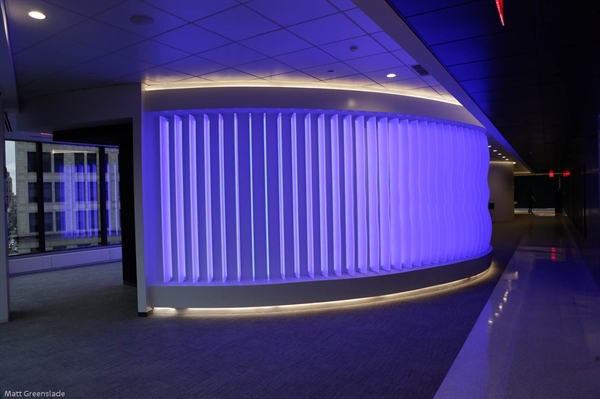The editorial staff of MM&M recently visited IBM Watson’s offices in New York, as part of its research examining IBM’s big bet on healthcare. What ensued was the creation of Watson Week, an online editorial series that seeks to better understand and explain why IBM saw an opportunity to market the Watson cognitive computing system to the U.S. healthcare market at a time when it is undergoing rapid changes.

The editorial team’s tour of the Watson Experience Center in New York City began at the Immersion Room, a mini theater in which wraparound screens visualize the potential of Watson in healthcare. Our photographer was not permitted inside, but we saw a case study showing how Watson’s cognitive computing engine can be used by doctors to speed up medical diagnosis. IBM’s vision is for physicians to partner with Watson to “enhance human capability.”

Outside the Immersion Room, a Watson experience manager demo’d Watson for Oncology, which came about four years ago through a partnership with Memorial Sloan Kettering Cancer Center. The tool leverages de-identified patient data and millions of journal articles and texts to display treatment options, each of which is color-coded for risk and confidence level. MSK curated the data set, and oncologists can view what studies supported the considerations.

Among other healthcare tools powered by Watson, Discovery Advisor is designed for use by scientists to speed up discovery of new therapies and new applications for existing drugs.

Bill Evans, chief marketing officer for Watson Health, spoke to the MM&M editorial team about the one-year-old business unit’s four acquisitions over the past 12 months. The most recent, its $2.6-billion purchase of Truven Health Analytics in February, added payer claims data. “If you think about how the industry is moving toward an outcomes-based model, you need real world evidence attached to the treatment paradigm,” said Evans. “Being able to model all of that data gives us very good insights into what’s working and what’s not.”








